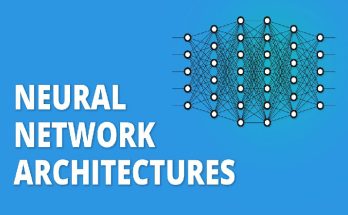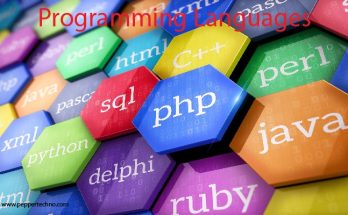Latest Breakthroughs in Quantum Computing Technology
Welcome to the exciting world of Quantum Computing Technology! Imagine a realm where traditional computers’ limitations are shattered, paving the way for groundbreaking advancements in processing power and data analysis. In this blog post, we will delve into the history, latest breakthroughs, applications, benefits, and future possibilities of quantum computing technology. Get ready to be amazed by the potential impact this revolutionary technology can have on various industries. Let’s embark on this quantum journey together!

History of Quantum Computing
Quantum computing might seem like a cutting-edge technology, but its roots actually date back to the early 1980s when physicist Richard Feynman proposed the idea of simulating quantum systems using computers. Building on this concept, mathematician David Deutsch introduced the theory of quantum computation in 1985.
The term “quantum computing” was coined by Yuri Manin and Richard Feynman in the early stages of research. In 1994, Peter Shor developed an algorithm demonstrating how a quantum computer could solve problems exponentially faster than classical computers.
Throughout the years, researchers and scientists have made significant strides in understanding and harnessing the power of quantum mechanics for computational purposes. The history of quantum computing is marked by breakthrough discoveries that have paved the way for exciting advancements in technology today.
Applications of Quantum Computing
Quantum computing technology has the potential to revolutionize various industries with its unparalleled capabilities. One of the most exciting applications of quantum computing is in cryptography, where it can enhance security by solving complex mathematical problems at an exponentially faster rate than classical computers.
In the field of drug discovery, quantum computing can simulate molecular interactions accurately and efficiently, leading to the development of new drugs and treatments for diseases. Furthermore, quantum computing’s optimization algorithms are promising for improving supply chain management and logistics by finding the most efficient routes and minimizing costs.
Additionally, quantum machine learning holds promise in analyzing vast amounts of data quickly, enabling advancements in artificial intelligence and predictive modeling. The applications of quantum computing are diverse and continue to expand as researchers unlock its full potential across various sectors.
Latest Advancements in Quantum Computing Technology
Quantum computing technology has been rapidly evolving, with recent advancements pushing the boundaries of what was once thought possible. Researchers are making significant progress in developing more stable qubits, the building blocks of quantum computers, which is crucial for improving computational power and accuracy.
One exciting breakthrough is the development of error-correction codes to enhance fault tolerance in quantum systems. This innovation could mitigate errors caused by environmental disturbances, bringing us closer to achieving practical quantum computing capabilities.
Moreover, scientists are exploring new methods to increase the coherence time of qubits, allowing them to maintain their quantum state for longer periods. This extended coherence time is essential for performing complex calculations without losing valuable information.
Additionally, there have been notable strides in creating robust quantum algorithms that can solve real-world problems efficiently. These advancements signify a promising future where quantum computers may revolutionize industries such as healthcare, finance, and cybersecurity.
Benefits and Limitations of Quantum Computing
Quantum computing offers a plethora of benefits that can revolutionize various industries. One major advantage is its ability to perform complex calculations at an exponentially faster rate than classical computers. This speed can lead to significant advancements in areas like drug discovery, weather forecasting, and cryptography.
Additionally, quantum computing has the potential to solve problems that are currently unsolvable with classical computers due to its unique principles of superposition and entanglement. This opens up new possibilities for scientific research and technological innovation.
However, despite its promising advantages, quantum computing also faces limitations. One challenge is the susceptibility of quantum systems to errors caused by noise and interference from the environment. Overcoming these errors through error correction techniques remains a key area of research in the field.
Moreover, the current high cost and complexity of building quantum computers pose barriers to widespread adoption. As technology advances and more efficient solutions are developed, these limitations are expected to diminish, unlocking even greater potential for quantum computing in the future.
Future Possibilities and Impact on Different Industries
As quantum computing technology continues to evolve, the future holds exciting possibilities across various industries. In healthcare, quantum computers could revolutionize drug discovery by simulating complex molecular interactions at a speed unimaginable with traditional computers. This breakthrough could lead to faster development of lifesaving medications and personalized treatments.
In finance, quantum computing’s immense computational power has the potential to optimize investment strategies and risk management techniques. By quickly processing vast amounts of data, financial institutions can make more informed decisions in real-time, enhancing market efficiency and reducing risks.
Moreover, in cybersecurity, quantum computing offers heightened security through advanced encryption methods that conventional systems cannot break. This innovation could safeguard sensitive data from cyber threats and protect critical infrastructure from malicious attacks.
The impact of quantum computing on different industries is poised to be transformative and revolutionary as we step into a future where limitations are redefined by boundless possibilities.
Conclusion
In a world constantly evolving with technological advancements, quantum computing stands out as a groundbreaking innovation that has the potential to revolutionize industries across the globe. The strides made in quantum computing technology are not only impressive but also hold immense promise for solving complex problems faster and more efficiently than ever before.
As researchers and scientists continue to push the boundaries of what is possible with quantum computing, we can expect to see even more remarkable breakthroughs in the near future. From enhancing cybersecurity and optimizing supply chains to accelerating drug discovery and advancing artificial intelligence, the applications of quantum computing are limitless.
While there are still challenges to overcome, such as addressing errors in computation and improving scalability, the benefits that quantum computing offers far outweigh its limitations. As industries embrace this transformative technology, we can anticipate significant improvements in efficiency, productivity, and innovation that will reshape our world in ways we have yet to imagine.
The journey of quantum computing technology is just beginning. We stand on the brink of a new era where what was once considered impossible may soon become reality. With continued research, collaboration, and investment in this cutting-edge field, we are poised to unlock unprecedented opportunities that will propel us into a future limited only by our imagination.



